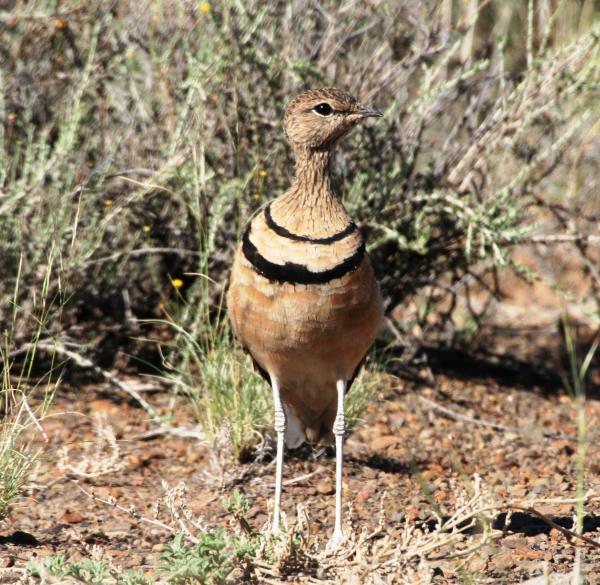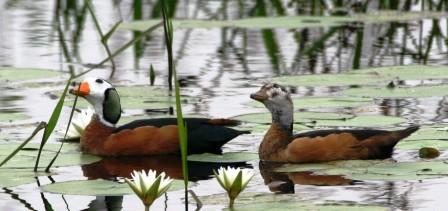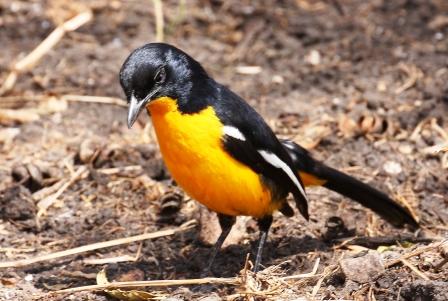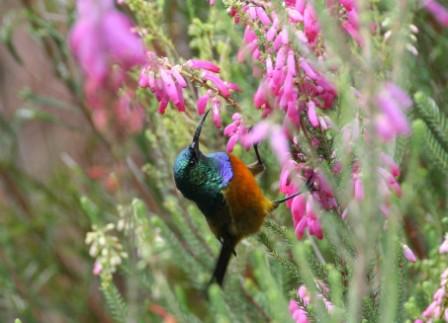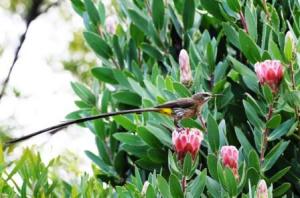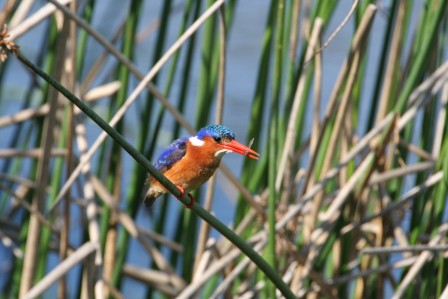|
|
JOIN OUR MAILING LIST |
|
Newsletter / Blog 2012-09-01 Soda ash mining at Lake Natron is not economically viable - The most important breeding site for Lesser Flamingos in the world. Lake Natron is the most important breeding site for Lesser Flamingos in the world. Mining of soda ash at Lake Natron in Northern Tanzania is not economically viable, experts have warned. A new Cost Benefit Analysis report shows that projected return on investment over the next 50 years would be a loss of between $44,354,728 and $492,142,797, even if exempted from paying tax by the Government. The report shows that the Tanzanian public and local communities stood to gain between $1.28 and 1.57 billion in 50 years, if the Government of Tanzania invests in tourism, protection of the environment and promotion of local livelihood alternatives. Compared to soda ash mining, the people and environment would still tap greater benefits even if the Government continued managing and investing in the environment at current levels (business as usual). “At the present levels of soda ash prices and investment costs the benefits of ecosystem conservation outweigh the benefits of soda ash mining”, said Dr Reuben Kadigi, the economist who lead the Cost Benefit Analysis team. “The soda ash plant would deliver far worse returns for local people. There will be losses of benefits from different uses”, he added. The economic case for soda ash mining is complicated by the fact that the quality of the mineral at Lake Natron is low. The report further shows that support for the soda ash mining proposal at Lake Natron is insignificant. Eighty four per cent of 175 local community respondents consulted during the study were strongly opposed to the soda ash plans while 10 per cent were in support. The rest were neutral. Mrs Sophia Ndakarr, the Chair of the Ngare Sero cultural boma said ecotourism gives the local communities better opportunities. “Tourists come to see our beautiful culture and enjoy nature. In the process our lives are better. We cannot say the same of a soda ash plant.” The study, which was undertaken between September 2011 and May 2012 looked at three possible options for Lake Natron: soda ash mining, business-as-usual and ecotourism and livelihood promotion. Estimates of benefits and costs from the soda ash business were based on eight production options. The eight options were a combination of the amount of soda ash to be produced (that is either 500,000 or 1 million tonnes per year); annual increase in soda ash production (2% or 5%) and length of the project (17,38 or 50 years). Four of the options assumed that the investor would bear the costs of construction/rehabilitation of the Tanga-Lake Natron railway and the road from Arusha. Lake Natron is the most important breeding site for Lesser Flamingos in the world. East Africa has between 1.5-2.5 million (three-quarters of global population) pink flamingos and most them are hatched at Lake Natron. Tata Chemicals Industries put forward the initial proposal to construct a soda ash plant at the Lake in 2006, but withdrew in May 2008 following concerns over negative impacts on flamingo breeding, local livelihoods and the environment. However, the Government of Tanzania through the National Development Corporation maintains a keen interest. From the Cost Benefit Analysis study, only three out of eight soda ash scenarios seem to suggest some positive benefit to the investor but even these would require soda ash to be produced at 1 million tonnes throughout the project period. “This level of soda ash production is not tenable for an ecologically sensitive environment like Lake Natron. It would also be technologically unrealistic” said Dr Fred Kilima who co-authored the report. “These scenarios require that the construction of basic infrastructure like roads and rail link be borne by externally and not by the investor.” The report further points to another challenge to future natural soda ash production – the stiff competition it faces from the synthetic variety. China is a leading producer of synthetic soda ash. Tata Chemicals Magadi factory in Kenya has been feeling this competition and has at times operated at very low production levels. “The Government of Tanzania should use the report to re-assess its long-standing desire to build a soda ash factory at Lake Natron”, said Mr Deo Gamassa, the CEO of Wildlife Conservation Society of Tanzania (BirdLife in Tanzania). He added, “The Lake Natron communities are better off without the soda ash plant. Investment should now focus on promoting ecotourism which is now proved to be the economically better option.”
|
| Back | Back to top |
 |  | Cape Town Tourism  |
|||||||||||||

